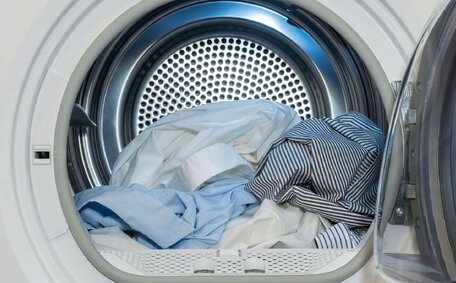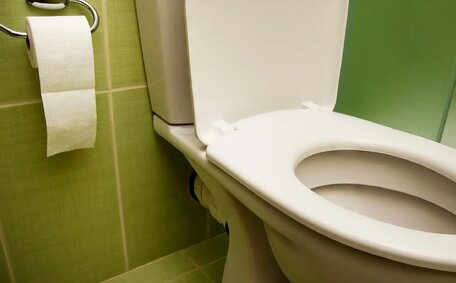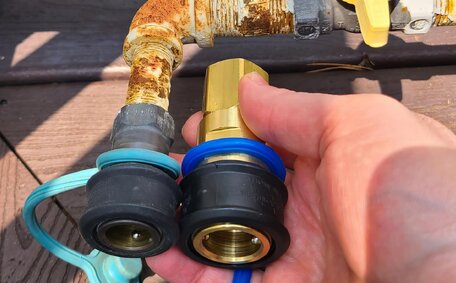Introduction to Smart Water Heaters
Smart electric water heaters mark a major milestone in marrying smart home technology with solar hot water systems. Connecting to smart meters within your home’s Wi-Fi network, they allow remote management through smartphone apps or voice assistants.
The key benefits of electric water heaters with smart technology include:
- Improved energy efficiency - The system is optimised to pump hot water efficiently, adapting to your usage patterns to prevent waste.
- Integration with other smart home devices - manage hot water tanks effortlessly alongside lighting, security and more.
- Remote monitoring and control - adjust and control hot water temperatures with a smart switch and keep tabs on usage from your phone, even when away from home.
- Enhanced reliability - smart diagnostics can identify issues early and even automatically contact plumbers if servicing is required.
Equipped with heating and cooling features, smart water heaters boost energy and cost savings, also ensuring convenient access to hot water. Heat pump water heaters can also form part of contemporary eco-friendly lifestyles.
How Smart Water Heaters Work
Leveraging sensors and AI, smart water heaters with heat pumps customise water heating to meet your specific needs. Key components give you the ability to control hot water heating like:
- WiFi connectivity - The system’s home internet connection simplifies remote monitoring and control, facilitating quick communication with your plumber when needed.
- Smart controller - An integrated computer regulates heating water effectively based on usage patterns.
- Sensors - Devices that monitor water flow and water temperature, among other factors, which can give insight to inform heating decisions.
- Apps and voice control - Manage temperatures with the Nest Learning thermostat, and with its alerts and management features, you can look after your hot water seamlessly.
By learning hot water usage patterns, smart technology allows these systems to self-adjust, leading to significant efficiency gains. Take solar water heaters for instance: they may power down during low-demand overnight hours and still ensure a generous supply for morning showers. The system eliminates guesswork, ensuring water is heated only when necessary, so I get efficient energy use without waste.
The smart controller utilises solar power, interfacing with mechanisms in heat pump water heaters that heat both water and air. With solar systems, it assists the water heat pump hot water production based on solar input and demand. By fine-tuning for peak demand scenarios like the morning hot shower rush, efficiency improves greatly.
Water heater smart technology provides a user-friendly approach to harness solar hot power, conserving energy and trimming costs on hot water. Their compatibility with other smart devices also facilitates smooth integration with systems such as storage water tanks for comprehensive home automation.
Key Benefits of Smart Water Heaters
The Smart water heaters present several benefits when compared to traditional systems for households. Key benefits include:
- Energy savings - Smart heaters can save on your electricity bills by up to 30% through optimised water heating.
- Convenience - Control your water temperatures and scheduling from your smartphone, even when away from home.
- Integration - Connects with other smart products like Google Assistant for voice activated control.
- Eco-friendly - Increased efficiency means lower carbon emissions.
- Peace of mind - Get alerts and automatic servicing updates for complete reassurance.
Features such as custom usage reports and remote shutdown grant enhanced control over your water system’s delivery. By self-optimising based on learned routines, Smart systems deliver water from your storage tank precisely when needed, helping you save money without wasting energy.
With simple integration and lifestyle enhancement features which can make water heating more cost-effective, even gas heaters can be upgraded to smart water heaters.
Energy Savings
Smart water heaters can result in substantial energy savings in comparison to conventional systems. By optimising heating to match when you’re using hot water, these systems can reduce energy costs by up to 30%.
Heat pump water heaters deliver comparable hot water to conventional units while consuming approximately 60% less energy.Backed by integrated smart controls, the efficiency savings propel gas solar hybrids, drawing on solar energy for enhanced advantages.
Local households are increasingly opting for energy-efficient pump hot water systems, potentially qualifying for government rebates and incentives. In partnership with Endeavour Energy, Ryde Plumbing provides advice on retail programmes available for additional savings.
With optimised heating, Integration capabilities and potential rebates, upgrading to a smart water heater gives you control over energy consumption in a smart way to save.
Remote Monitoring and Control
A standout feature of smart water heaters is the capacity for remote monitoring and control of temperatures and settings. Users can manage settings through a smartphone app, such as the Nest app, or via voice assistant integration:
- Adjust hot water temperatures up or down
- Customise heating schedules and modes
- Can turn off or adjust to Vacation Mode to conserve energy
- View usage reports and statistics
- Receive notifications about system health and servicing needs
Remote functionality ensures consistent hot water, offering convenience and the potential for savings. For instance, having the ability to control when you use hot water heating can mean you don’t waste energy during times when it isn’t in demand. You can turn temperatures down slightly when away to save power.
A Smart system like smart water heaters lets you take control from anywhere, ensuring your water energy usage is optimised in a hassle-free experience that’s tailored to your lifestyle.
Optimized Usage and Scheduling
Smart water heaters give users the ability to fine-tune their hot water settings, enabling precise temperature control for improved efficiency. Through the app or web portal, custom heating schedules can be set up based on:
- Peak and off-peak electricity tariff times - Allocating greater hot water use during off-peak periods can secure savings, particularly during the day.
- Household routines - Adapt water heating to correspond with usage, informed by learned behaviour patterns.
- Special events - Temporarily increase/decrease temperatures for guests etc.
Usage charts empower customers using your smart system to analyse times of high and low hot water needs. This insight enables tweaks to be made for optimised heating schedules, knowing when to turn the water heater off for maximum efficiency.
By tailoring water heating to usage, smart systems can be used to enhance convenience while avoiding energy waste. Custom schedules synched with electricity pricing allow households to maximise savings every day.
Considering Compatibility with Your System
When looking to add smart technology to your existing hot water system, it’s important to check system compatibility to ensure full functionality.
Key considerations include:
- Age of system - Older units may lack technical capabilities to integrate upgrades.
- Fuel type - Smart controls available differ across electric gas systems, heat pumps, solar etc.
- Tank configuration - Size and layout impacts fitted devices.
- WiFi strength - Connectivity issues will affect remote access.
Our team at Ryde Plumbing can inspect your electric hot water equipment, offer advice, and provide all the necessary information about incorporating smart water technology. With the right planning, we can find solutions to optimise your hot water cylinder for convenience, efficiency and savings.
There’s no downside to modernising your system as even these smart devices qualify for government rebate programs. We guide you through the process seamlessly from start to finish.
WiFi and Smart Home Integration
Connecting your hot water system to your home WiFi and integrating it with smart platforms like Google Assistant or Amazon Alexa is straightforward. Here are the steps:
- Ensure your hot water system is compatible. Most contemporary electric, combi boiler, gas and solar systems come with the option for connectivity, be it built-in or via a smart controller addition. We can put your system through a compatibility assessment.
- Check WiFi coverage reaches your water heater location. If signal is weak, consider a range extender.
- Download the system manufacturer’s mobile app and create an account to set up the device.
- Follow the in-app instructions to connect to your WiFi network. This pairs the system with your new meter technology, allowing for remote monitoring and control.
- Link services for smart integration - options may include Google Assistant for voice control, IFTTT for automations etc.
- Test functionality like remotely changing temperatures or modes. Your hot water is now integrated into your smart home ecosystem.
We can troubleshoot connectivity, optimise system integration and ensure you enjoy the full benefits of smart hot water technology.
Solar System Compatibility
Smart water heaters can integrate seamlessly with your solar water systems, employing advanced water storage strategies for enhanced energy efficiency. The smart controller operates the electric heating elements or heat pump in your hot water tank, preventing shortages during periods of low solar input.
If enough sun-heated water is available, the intelligent system will bypass the need to boost hot water with electric heating, avoiding unnecessary conventional energy use. It will ensure you don’t run out hot water when solar input wanes (like overnight) and bolster supplemental heating accordingly, aligning with off-peak times.
Smart heaters synergise with your solar PV system to bolster sustainable hot-water heat production. The water heater can utilise data from panels to auto-adjust scheduled heating during periods of peak renewable energy generation for optimal savings. Excess solar electricity is used to heat water instead of exporting surplus to the grid for little value.
Households can enjoy both sustainable energy supply and smart usage optimisation through crafted integrations between renewable technology and smart water heating.
Professional Installation Recommendations
It’s essential to have your smart water heater professionally installed to guarantee safety, functionality, and lasting reliability.
Accredited plumbers like Ryde Plumbing are experts at:
- Ensuring correct wiring and connectivity to WiFi networks
- Integrating devices with other smart systems in your home
- Providing safety checks and certification
- Advising on the most suitable solutions for your home
- Offering continued maintenance and support
Professional installation offers significant benefits:
- Optimised setup of electric hot water components for maximum efficiency and savings
- Compliance with regulations and industry standards
- Reduced risk of leaks, floods or electrical faults
- Proper integration with smart home ecosystems
- Ongoing assistance including repairs if required
With extensive training and experience, our plumbers ensure your electric water heater is correctly and safely fitted for seamless convenience and energy savings for years to come.
Safety and Usage Considerations
Safety is paramount when installing or servicing hot water systems. Only accredited professionals like plumbers from Ryde Plumbing should handle complex electrical and plumbing works.
Key safety considerations include:
- Electrical - Incorrectly wiring a hot water heater can lead to electric shocks or fires. Our electricians ensure safe practises.
- Water - Faulty parts can cause dangerous leaks and floods. We implement controls like leak detectors.
- Refuelling - Replenishing your gas water systems carries explosion and poisoning dangers if not handled properly.
- Materials - Components, including those made of robust stainless steel, should meet quality standards to avoid hazards like tank corrosion.
- Location - Access and ventilation requirements must be met to prevent issues like mould.
By partnering with properly qualified personnel for installation and permitting routine maintenance, ensure you make sure households can enjoy safe and reliable hot water. We’re committed to best practise service backed by accreditation and training.
Cost Analysis and Payback Period
The long-term energy savings from investing in a smart water heater can offset the initial expense. While the initial cost is typically more expensive than conventional heaters, the efficiencies realised in a pump hot water system translate into energy savings that accumulate in the long term.
Based on average Sydney households, upgrading from traditional electric to an integrated smart heat pump system commonly achieves a payback within 4 years. With the ideal setup and usage pattern, this can drop to two three years. Savings continue to build from this break-even point, and systems also offer additional value through enhanced convenience and integration.
Factoring in available rebates of around $1000 on qualifying models, the payback period shortens even more. We can advise on suitable systems and incentives to maximise your return on investment.
You may wonder how much running costs are; well, they also lower by $200-300 yearly, compounding over the 15-20 year lifecycle. Along with the convenience and lifestyle benefits, smart water heaters make financial sense for most homes.
The Future of Smart Water Heating
Smart water heating technology is rapidly evolving and will continue disrupting the hot water industry. Advancements in artificial intelligence will ensure energy your garden sprinklers use is more intelligently and precisely optimised for efficiency.
Further integration with other sustainable technology is on the horizon, however these technologies will be rigorously assessed for compatibility and efficiency. However, they must consider smart batteries linked to rooftop solar systems which will allow stored renewable energy to heat water. 'Vehicle-to-grid’ technology enabling EVs to power homes will provide another storage option.
Smart water heaters are poised to become a mainstay in energy-efficient, connected homes thanks to their convenience, cost-savings, and environmental advantages, which streamline energy consumption. As costs continue to reduce and capabilities improve, they will dominate new installations and retrofits.
Contact us today to discuss how the latest advancements can work for your home and lifestyle.






